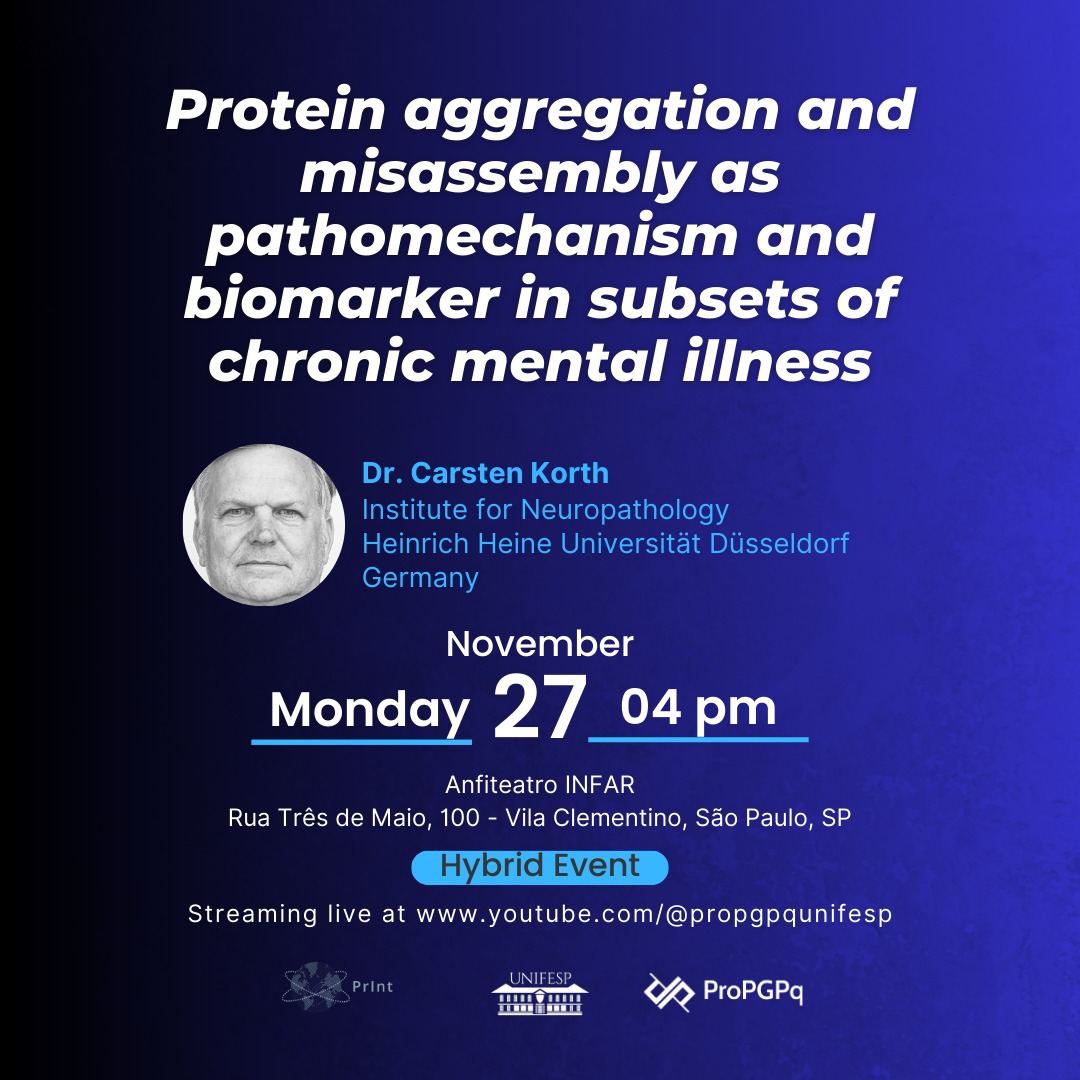On November 27, at 4 pm
Speaker: Professor Carsten Korth, Institute for Neuropathology, Heinrich Heine Universität Düsseldorf, Germany
Moderator: Mirian Hayashi, PhD, associate professor, Department of Pharmacology, Escola Paulista de Medicina - UNIFESP
Link to watch the event: https://www.youtube.com/@propgpqunifesp

Abstract
The project is in the realm of molecular and translational psychiatry with a focus of establishing protein-based mechanisms and protein-based biomarkers for subsets of chronic mental illnesses such as schizophrenia or the recurrent affective disorders. In one specific instance a transgenic rat model modestly overexpressing the human, non-mutant full length DIsrutped-in-schizophrenia 1 (DISC1) protein is used and analyzed by biochemistry, anatomical, pharmacological and behavioral methods. A collaboration exists to test various pharmacological therapies in this transgenic rat model for a subset of schizophrenia and test the effect of these pharmacotherapies on biomarkers and behavior. Another goal is to align and better define a schizophrenia subset to the tgDISC1 rat animal model in order to make therapy-relevant predictions on therapies.
Speaker further information:
The Korthlab investigates aberrant proteostasis as a cause for brain disease. Protein misassembly, misfolding or misprocessing in brain diseases, and the develops pharmacotherapies to interfere with or prevent these protein pathologies in neurodegenerative disease as well as in chronic mental illnesses such as schizophrenia or the recurrent affective disorders. There is a broad covering of molecular techniques from expression of recombinant proteins in E. coli, to advanced molecular biology techniques such as library generation and screening, gene knockout, and gene engineering in transgenic mice and rats, to analysis of tissue and quantitative behavioral studies, as well as translational work using patients tissue specimens and fluids.
Specific areas of research (see also: Korthlab)
Investigation of aberrant proteostasis in brain diseases. A current focus is the identification of molecular interfaces linking external factors with critical, disease-typical circuitry in neurodegenerative and chronic mental diseases through investigating virus-induced dysfunctional proteostasis. The identified molecular interfaces are explored as targets for pharmacotherapy (link).Investigating the biological causes of schizophrenia or the recurrent affective disorders, and the development of biomarkers able to stratify patient subsets (link).Investigating the aspect of neuronal aging as aberrant proteostasis and analysis of its molecular mechanisms


